
Punchana: The Vibrant Heart of Iquitos
Punchana, a lively neighbourhood in the bustling city of Iquitos, is a treasure trove of culture, history, and natural beauty. Nestled on the banks of the Amazon River, Punchana offers visitors a unique blend of urban energy and serene riverine landscapes. The neighbourhood is known for its vibrant markets, where you can find everything from fresh Amazonian fish to handcrafted souvenirs. The local vendors are friendly and always eager to share stories about their goods, making your shopping experience truly memorable. One of the highlights of Punchana is its rich cultural heritage. The area is home to several museums and cultural centres that showcase the history and traditions of the indigenous communities of the Amazon. If you're a history buff, the Museum of Indigenous Amazonian Cultures is a must-visit. Here, you can learn about the diverse tribes that have called this region home for centuries. Nature lovers will also find plenty to explore in Punchana. The neighbourhood is a gateway to the Amazon Rainforest, offering numerous opportunities for eco-tours and wildlife spotting. Whether you prefer a guided boat tour or a solo hike, the lush greenery and exotic wildlife of the Amazon will leave you in awe. Don't forget to take a stroll along the Malecon Tarapaca, a scenic riverside promenade perfect for an evening walk as you watch the sun set over the Amazon River.
Local tips in Punchana
- Visit the local markets early in the morning for the freshest produce and unique souvenirs.
- Take a guided tour to fully appreciate the biodiversity of the Amazon Rainforest.
- Wear comfortable walking shoes and bring insect repellent for your explorations.
- Don't miss the sunset views from the Malecon Tarapaca promenade.
- Learn a few basic Spanish phrases to enhance your interactions with the friendly locals.
Punchana: The Vibrant Heart of Iquitos
Punchana, a lively neighbourhood in the bustling city of Iquitos, is a treasure trove of culture, history, and natural beauty. Nestled on the banks of the Amazon River, Punchana offers visitors a unique blend of urban energy and serene riverine landscapes. The neighbourhood is known for its vibrant markets, where you can find everything from fresh Amazonian fish to handcrafted souvenirs. The local vendors are friendly and always eager to share stories about their goods, making your shopping experience truly memorable. One of the highlights of Punchana is its rich cultural heritage. The area is home to several museums and cultural centres that showcase the history and traditions of the indigenous communities of the Amazon. If you're a history buff, the Museum of Indigenous Amazonian Cultures is a must-visit. Here, you can learn about the diverse tribes that have called this region home for centuries. Nature lovers will also find plenty to explore in Punchana. The neighbourhood is a gateway to the Amazon Rainforest, offering numerous opportunities for eco-tours and wildlife spotting. Whether you prefer a guided boat tour or a solo hike, the lush greenery and exotic wildlife of the Amazon will leave you in awe. Don't forget to take a stroll along the Malecon Tarapaca, a scenic riverside promenade perfect for an evening walk as you watch the sun set over the Amazon River.
Iconic landmarks you can’t miss
Iquitos Square
Experience the vibrant culture and natural beauty of Iquitos Square, a must-visit park in the heart of the Amazonian city of Iquitos.
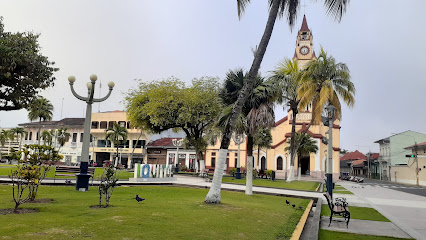
Plaza 28 De Julio
Experience the vibrant atmosphere of Plaza 28 De Julio, Iquitos' cultural hub, where history, nature, and local life beautifully intertwine.
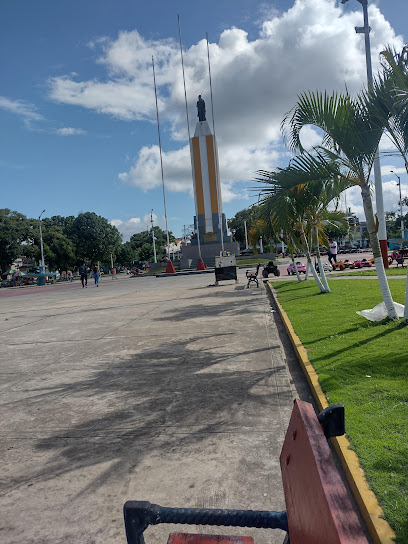
Mercado Belén
Discover the heart of Iquitos at Mercado Belén, a vibrant market filled with local flavors, crafts, and the spirit of the Amazon.
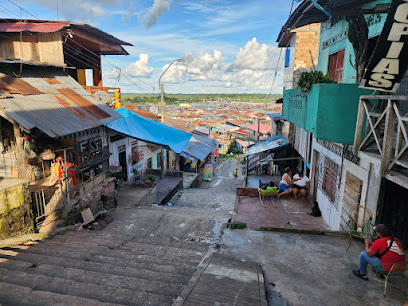
Plaza Bellavista Nanay
Explore the lush beauty and cultural vibrancy of Plaza Bellavista Nanay, a must-visit park in Iquitos, Peru.
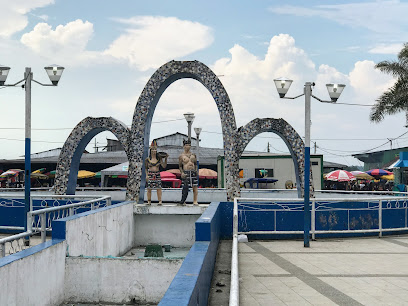
Embarcadero Restaurante Al Frío y al Fuego
Discover the rich culinary heritage of Iquitos at Embarcadero Restaurante Al Frío y al Fuego, where every meal is a celebration of Amazonian flavors and stunning river views.
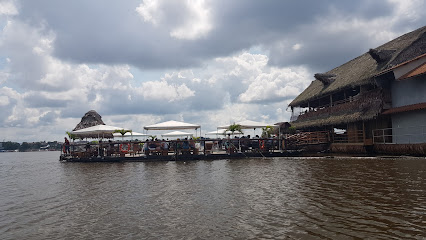
Casa de Fierro
Experience the vibrant flavors of the Amazon at Casa de Fierro, a culinary landmark in Iquitos, Peru, offering a unique blend of local cuisine and cultural charm.
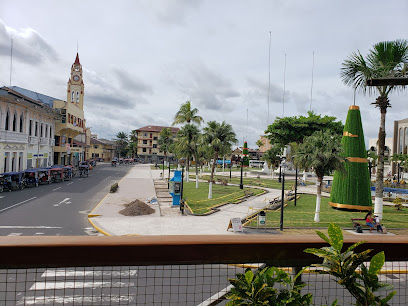
Pilpintuwasi
Experience the wonder of Amazonian wildlife at Pilpintuwasi, a sanctuary dedicated to rescuing endangered species and promoting conservation efforts.
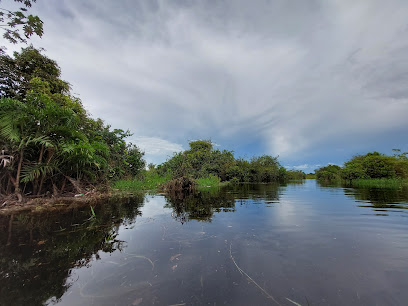
Boat Museum
Discover the enchanting maritime history of the Amazon at the Boat Museum in Iquitos, where culture and heritage come alive through unique exhibits.
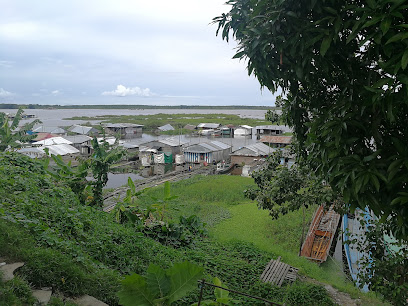
Awkipuma Spiritual Healing Center - Ayahuasca Retreat
Discover profound healing and transformation at Awkipuma Spiritual Healing Center in Iquitos, Peru, specializing in Ayahuasca retreats and holistic practices.
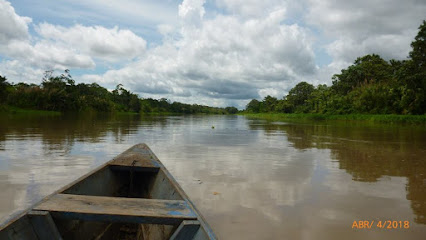
Old Hotel Palace
Explore the historic Old Hotel Palace in Iquitos, a captivating blend of architectural elegance and rich Amazonian heritage.
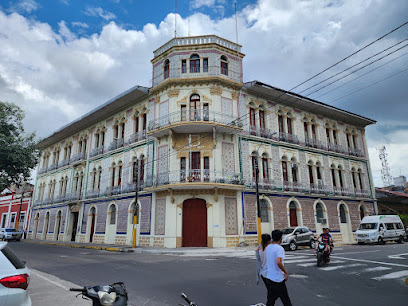
Iquitos
Discover the vibrant culture and breathtaking nature of Iquitos, the Amazon's largest city, where adventure and tradition await every traveler.
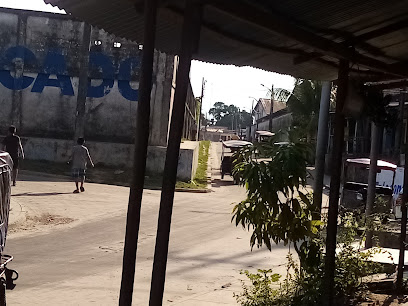
PERÚ
Discover the charm of Hotel PERÚ in Iquitos, the perfect base for your Amazon adventure, blending comfort, culture, and local hospitality.
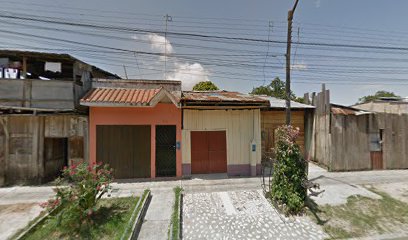
Casa Cohen
Discover the rich history of Iquitos at Casa Cohen, a stunning historical landmark reflecting the opulence of the rubber boom era.
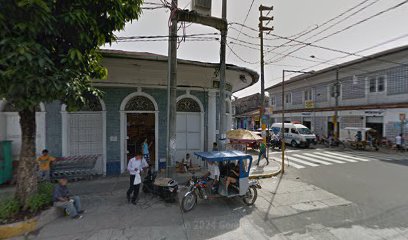
Punchana
Explore Punchana, a vibrant district in Iquitos, Peru, where Amazonian culture, lush nature, and local delicacies await your discovery.

Unmissable attractions to see
Iquitos Square
Explore Iquitos Square, a vibrant park in the heart of Iquitos, Peru, where culture, relaxation, and community come together amidst beautiful greenery.
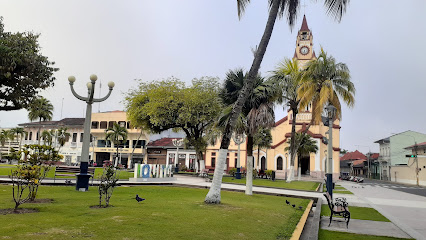
Plaza Bellavista Nanay
Explore the Cultural and Natural Wonders of Plaza Bellavista Nanay in Iquitos, a Perfect Blend of Relaxation and Local Experiences.
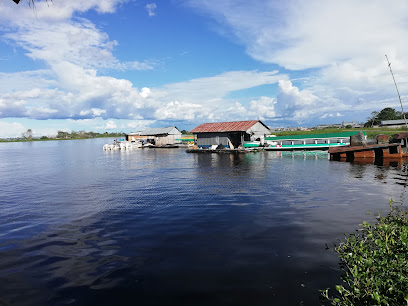
Casa de Fierro
Discover the vibrant flavors of Iquitos at Casa de Fierro, where authentic Peruvian cuisine meets a rich cultural atmosphere.
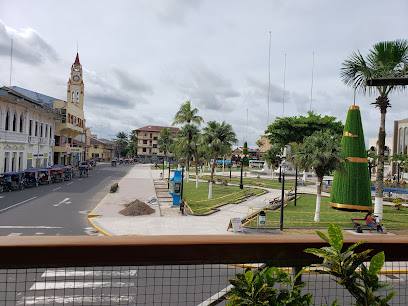
Fundo Pedrito
Discover the stunning landscapes and vibrant culture at Fundo Pedrito, a premier tourist attraction in Barrio Florido, Peru.
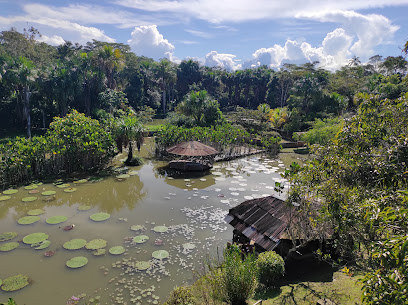
Bosque de Huayo
Explore the enchanting Bosque de Huayo, a vibrant botanical garden in Varillal, Peru, showcasing the Amazon's rich flora and fauna in a serene setting.
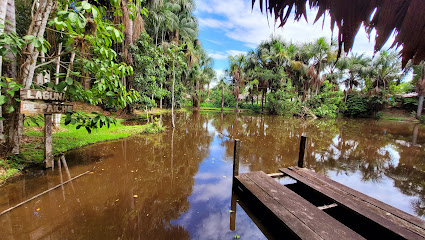
Boulevard - Iquitos
Experience the vibrant culture and lively atmosphere at Boulevard in Iquitos, a must-visit tourist attraction in the heart of the Amazon.
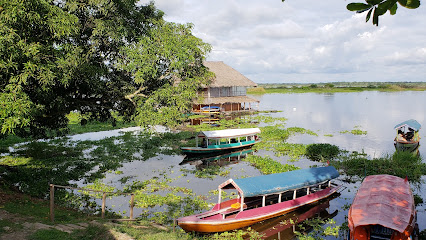
Essential places to dine
Restaurant Cevichería El Mijano
Discover authentic Peruvian flavors at Cevichería El Mijano in Iquitos - home to delicious ceviche and a warm dining atmosphere.
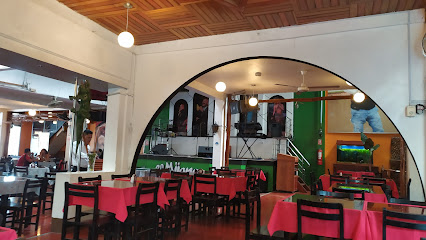
Cevicheria El rico Cha Cha Cha
Experience authentic Peruvian ceviche at Cevicheria El rico Cha Cha Cha in Iquitos - A must-visit seafood haven!
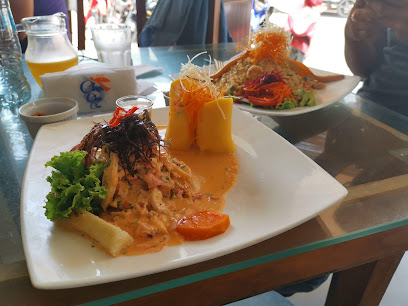
A lo Firme Cebichería Restaurant
Experience authentic Amazonian cuisine at A lo Firme Cebichería Restaurant in Iquitos - where fresh seafood meets vibrant flavors.
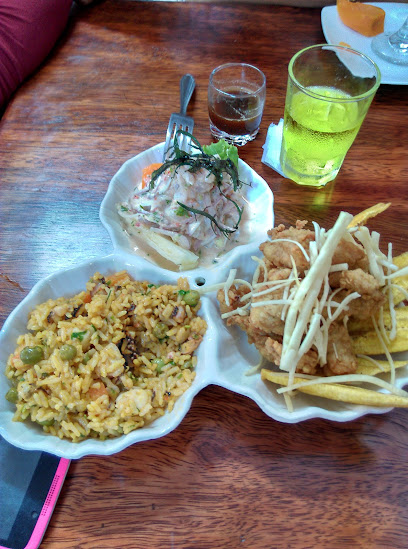
Restaurant Cevicheria La Concha A Su Mar
Experience authentic Peruvian ceviche at Cevicheria La Concha A Su Mar in Iquitos - where freshness meets tradition!
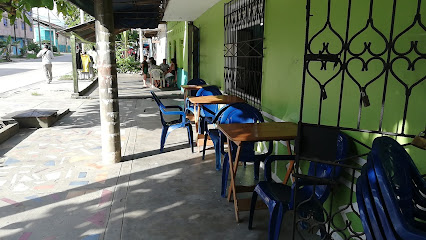
Rest. Cevicheria A & S Norteños - Punchana
Discover authentic Peruvian flavors at Rest. Cevicheria A & S Norteños in Iquitos – a haven for seafood lovers seeking traditional culinary delights.
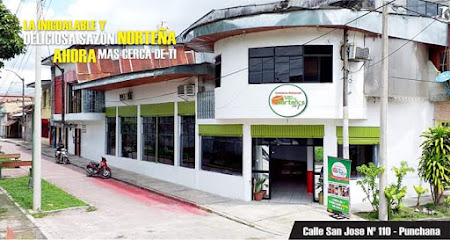
Restaurant Cevicheria A mi Estilo
Discover authentic Peruvian ceviche at Cevicheria A mi Estilo in Iquitos – where fresh seafood meets vibrant local flavors.
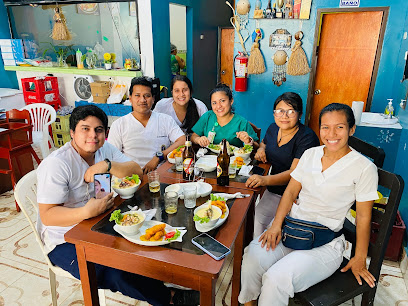
Anticuchos y Sanguches a la Parrilla Pa' Pikar
Discover the authentic taste of Peru at Anticuchos y Sanguches a la Parrilla Pa' Pikar in Iquitos—where tradition meets flavor!
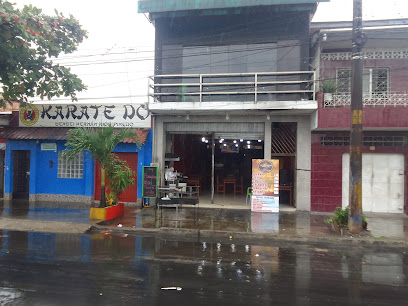
Restaurante a tú Gusto..
Discover authentic Peruvian cuisine at Restaurante a tú Gusto in Iquitos, where local flavors meet warm hospitality.
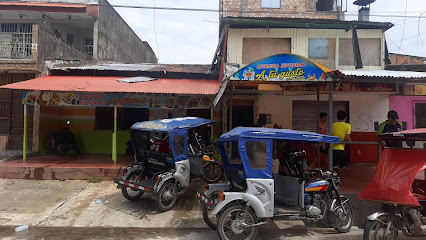
Rincón del Sabor
Experience authentic Peruvian cuisine at Rincón del Sabor, where every dish tells a story and every bite delights your senses.
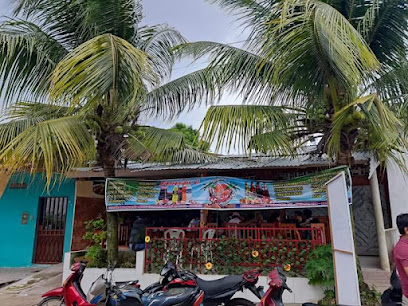
KANOAS Restaurant
Discover KANOAS Restaurant in Iquitos - where local flavors meet international cuisine amidst a vibrant atmosphere.
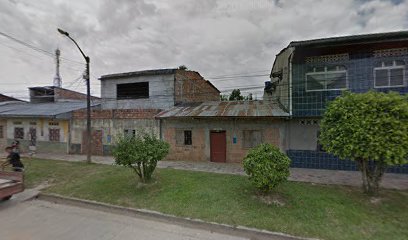
Markets, malls and hidden boutiques
Novedades Yarijef
Discover the vibrant culture of Iquitos at Novedades Yarijef, your go-to gift shop for unique local handicrafts and unforgettable souvenirs.
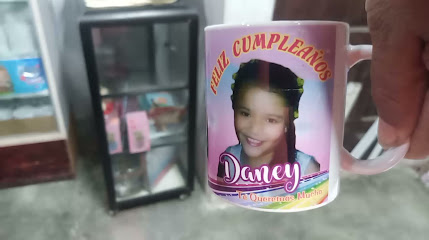
ROPITA IMPORTADA PARA BEBES
Explore Ropita Importada Para Bebes in Iquitos for unique imported baby clothing, combining style and comfort for your little ones.

HINODE UN MUNDO MEJOR
Immerse yourself in a fragrant experience at Hinode Un Mundo Mejor, Iquitos' premier destination for exquisite perfumes and unique scents.

Fersi&Gely
Explore the vibrant fashion scene at Fersi&Gely in Iquitos, where local craftsmanship meets contemporary style in a unique shopping experience.
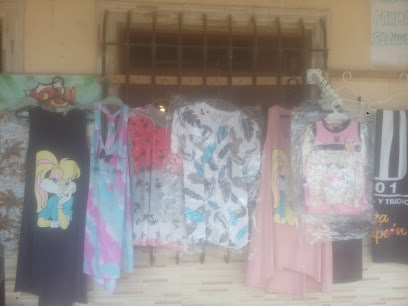
Bazar Valentina & Millet
Explore a vibrant clothing store in Iquitos, where traditional Peruvian fashion meets modern style and cultural richness.
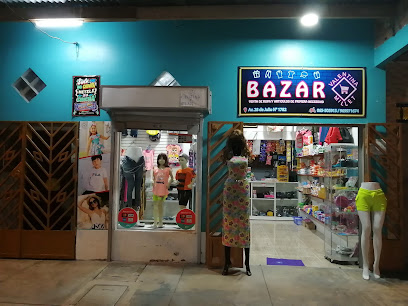
PuntoxPunto Amigurumis
Explore Iquitos' creativity at PuntoxPunto Amigurumis - a treasure trove of handcrafted amigurumi toys and unique Peruvian gifts.
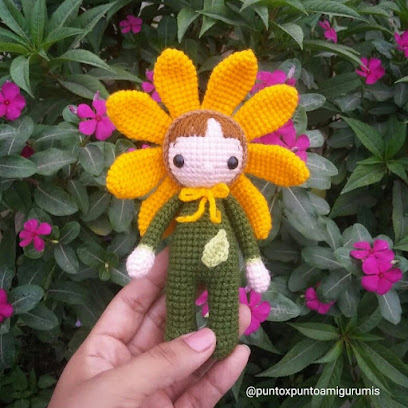
MONADITAS Fashion Shop
Explore the vibrant MONADITAS Fashion Shop in Iquitos for unique clothing showcasing local styles and trends, perfect for fashion enthusiasts.

Lady y ariana store
Explore the heart of Iquitos at Lady y Ariana Store, a gift shop offering unique handmade treasures and authentic Amazonian culture.
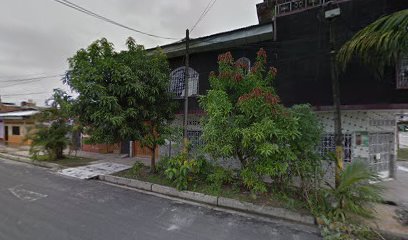
G SHOCK IQUITOS
Explore G SHOCK IQUITOS for stylish clothing that captures the essence of Amazonian culture in Peru's vibrant city.
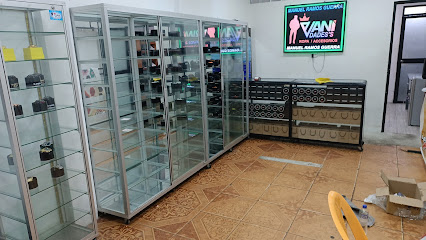
Forty-Seven
Discover the charm of Iquitos at Forty-Seven, a women's clothing store offering a unique blend of contemporary and traditional Peruvian fashion.
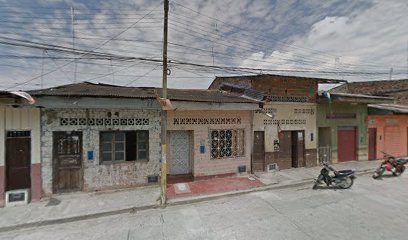
Essential bars & hidden hideouts
FRAGATA Restobar
Indulge in the vibrant flavors of Iquitos at FRAGATA Restobar, where culinary innovation meets the spirit of the Amazon.
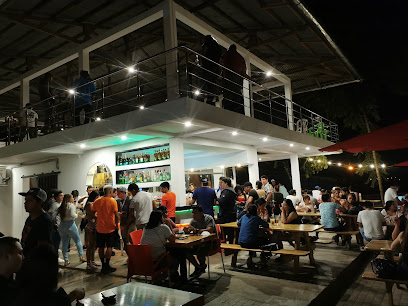
Fhjc
Experience the vibrant nightlife and local flavors at Fhjc Bar in Iquitos, where every sip tells a story of the Amazon.
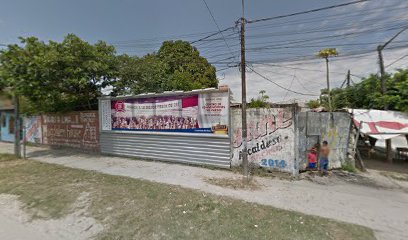
Mezclas
Experience the lively atmosphere and unique cocktails at Mezclas, a vibrant bar in the heart of Iquitos, Peru, where local culture meets great company.
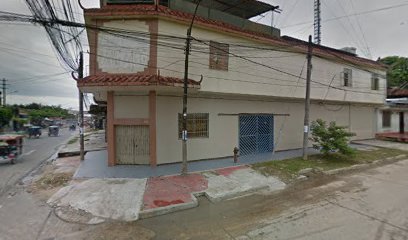
Chcho Bar
Experience the vibrant nightlife of Iquitos at Chcho Bar, where local culture and lively atmosphere unite for an unforgettable evening.
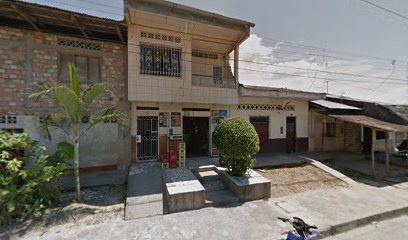
Bunker
Discover the vibrant nightlife of Iquitos at Bunker, a lively bar perfect for mingling with locals and enjoying refreshing drinks.
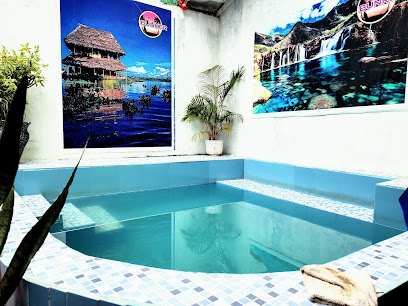
Terraza Bar
Experience the vibrant local culture and delicious craft brews at Terraza Bar in Iquitos, the perfect brewpub for tourists seeking an authentic taste of Peru.
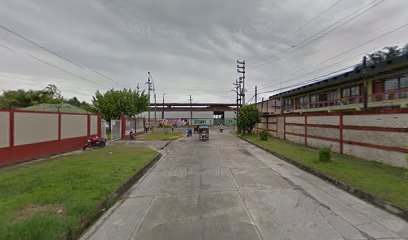
Michito's Bar
Discover the vibrant nightlife of Iquitos at Michito's Bar, where cocktails and local flavors create unforgettable memories.
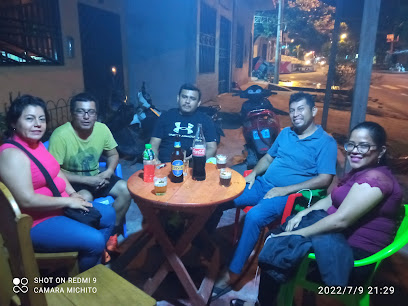
Punchana
Discover the vibrant nightlife at Punchana, a lively bar in Iquitos offering unique drinks and a rich cultural atmosphere for an unforgettable experience.
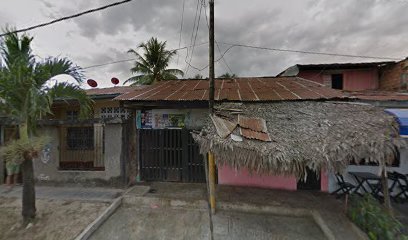
PIHUICHITOS CHARAP BAR
Discover the lively spirit of Iquitos at Pihuichitos Charap Bar, where local flavors and vibrant atmosphere come together for an unforgettable experience.
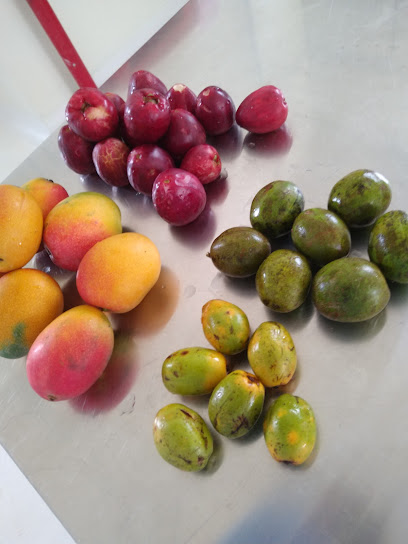
Resto bar de Claudia
Discover the heart of Iquitos nightlife at Resto Bar de Claudia, where local flavors and a vibrant atmosphere meet.
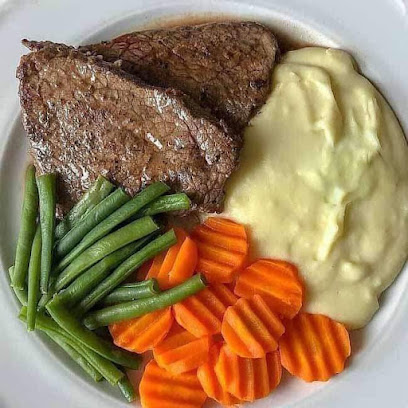
Local Phrases
-
- HelloHola
[oh-lah] - GoodbyeAdiós
[ah-dee-ohs] - YesSí
[see] - NoNo
[noh] - Please/You're welcomePor favor/De nada
[por fah-vor/deh nah-dah] - Thank youGracias
[grah-see-ahs] - Excuse me/SorryPerdón/Lo siento
[pair-dohn/loh see-en-toh] - How are you?¿Cómo estás?
[koh-moh es-tahs] - Fine. And you?Bien. ¿Y tú?
[byen. ee too] - Do you speak English?¿Hablas inglés?
[ah-blahs een-glays] - I don't understandNo entiendo
[noh en-tee-en-doh]
- HelloHola
-
- I'd like to see the menu, pleaseQuisiera ver el menú, por favor
[kee-see-eh-rah ver el meh-noo, por fah-vor] - I don't eat meatNo como carne
[noh koh-moh kahr-neh] - Cheers!¡Salud!
[sah-lood] - I would like to pay, pleaseQuisiera pagar, por favor
[kee-see-eh-rah pah-gar, por fah-vor]
- I'd like to see the menu, pleaseQuisiera ver el menú, por favor
-
- Help!¡Ayuda!
[ah-yoo-dah] - Go away!¡Vete!
[veh-teh] - Call the Police!¡Llama a la policía!
[yah-mah ah lah poh-lee-see-ah] - Call a doctor!¡Llama a un doctor!
[yah-mah ah oon dohk-tohr] - I'm lostEstoy perdido/a
[es-toy pair-dee-doh/ah] - I'm illEstoy enfermo/a
[es-toy ehn-fehr-moh/ah]
- Help!¡Ayuda!
-
- I'd like to buy...Me gustaría comprar...
[meh goos-tah-ree-ah kohm-prar] - I'm just lookingSólo estoy mirando
[soh-loh es-toy mee-rahn-doh] - How much is it?¿Cuánto cuesta?
[kwan-toh kweh-stah] - That's too expensiveEso es demasiado caro
[eh-soh es deh-mah-see-ah-doh kah-roh] - Can you lower the price?¿Puede bajar el precio?
[pweh-deh bah-har el preh-syo]
- I'd like to buy...Me gustaría comprar...
-
- What time is it?¿Qué hora es?
[keh oh-rah es] - It's one o'clockEs la una en punto
[es lah oo-nah en poon-toh] - Half past (10)Las diez y media
[lahs dyehs ee meh-dee-ah] - MorningMañana
[mah-nyah-nah] - AfternoonTarde
[tahr-deh] - EveningNoche
[noh-cheh] - YesterdayAyer
[ah-yehr] - TodayHoy
[oy] - TomorrowMañana
[mah-nyah-nah] - 1Uno
[oo-noh] - 2Dos
[dohs] - 3Tres
[trehs] - 4Cuatro
[kwah-troh] - 5Cinco
[seen-koh] - 6Seis
[seys] - 7Siete
[syeh-teh] - 8Ocho
[oh-choh] - 9Nueve
[nweh-veh] - 10Diez
[dyehs]
- What time is it?¿Qué hora es?
-
- Where's a/the...?¿Dónde está...?
[dohn-deh es-tah] - What's the address?¿Cuál es la dirección?
[kwal es lah dee-rek-syon] - Can you show me (on the map)?¿Puedes mostrarme (en el mapa)?
[pweh-dehs mohs-trar-meh (en el mah-pah)] - When's the next (bus)?¿Cuándo es el próximo (autobús)?
[kwan-doh es el proh-ksee-moh (ow-toh-boos)] - A ticket (to ....)Un boleto (a ...)
[oon boh-leh-toh (ah)]
- Where's a/the...?¿Dónde está...?
History of Punchana
-
Punchana, like much of the Iquitos region, has deep indigenous roots, primarily associated with the Boras and the Iquitos tribes. These groups relied on the rich resources of the Amazon rainforest, engaging in fishing, hunting, and agriculture. Their traditions and customs continue to influence the cultural fabric of Punchana today, evident in local festivals and crafts.
-
During the Spanish colonization in the 16th century, the area that is now Punchana began to take shape. The Spanish established trade routes along the Amazon River, which significantly impacted local economies and led to the establishment of settlements. The introduction of new agricultural practices and crops transformed the local lifestyle.
-
The late 19th century saw Punchana and the greater Iquitos area experience a boom due to the rubber trade. As demand for rubber surged, Iquitos transformed into a bustling hub, and Punchana became an essential community supporting this economic activity. The influx of wealth led to the construction of new infrastructure and the introduction of various immigrant communities.
-
With the influx of immigrants from Europe and Asia during the rubber boom, Punchana developed into a cultural melting pot. This diversity enriched local traditions, cuisine, and festivals, resulting in a unique blend of customs that can still be observed in the neighborhood today. The fusion of indigenous, European, and Asian influences is particularly evident in the local markets and culinary offerings.
-
In recent decades, Punchana has faced challenges related to urbanization and environmental changes. Issues such as deforestation and pollution have impacted the community. However, local organizations and residents are working to preserve their cultural heritage and promote sustainable practices, showcasing the resilience and adaptability of Punchana's population amidst modern challenges.
Punchana Essentials
-
Punchana is easily accessible from other neighborhoods in Iquitos. From the main square (Plaza de Armas), you can take a mototaxi, which is a popular and affordable mode of transport, costing around 5-10 soles. Alternatively, you can catch a local bus heading towards Punchana, which generally costs about 1-2 soles and runs frequently. If you prefer a more scenic route, consider a boat ride along the Itaya River, which provides a unique perspective of the area.
-
Punchana is primarily navigated by mototaxis, which are readily available and inexpensive. Walking is also a viable option, especially for short distances. Public buses can take you to various points within the neighborhood and nearby areas. Bicycles can be rented from local shops, providing a fun way to explore at your own pace.
-
While Punchana is generally safe for tourists, it is advisable to remain vigilant, especially in less crowded areas. Avoid venturing into the outskirts at night, as some areas have higher crime rates. The streets near the riverbanks can be risky after dark. Keep your belongings secure and be cautious of pickpockets, particularly in busy markets.
-
In case of an emergency, dial 105 for police assistance or 116 for medical emergencies. The nearest hospital is the Hospital Regional de Iquitos, which is equipped to handle most situations. It is advisable to have travel insurance that covers medical emergencies. Pharmacies are common, and many offer basic first-aid supplies.
-
Fashion: Do wear lightweight and breathable clothing due to the humid climate. Avoid overly revealing outfits, especially when visiting local markets or religious sites. Religion: Do be respectful of local customs and traditions. Avoid discussing sensitive topics such as politics or religion. Public Transport: Do offer your seat to elderly passengers. Don't engage in loud conversations or use your phone excessively on public transport. Greetings: Do greet people with a friendly 'Hola' and a smile. Don't forget to acknowledge locals when entering businesses. Eating & Drinking: Do try local dishes like juanes and tacacho. Don't drink tap water; always opt for bottled water instead.
-
To experience Punchana like a local, visit the bustling market Mercado de Punchana, where you can find fresh produce and traditional foods. Engage with local vendors and try street food delicacies. Consider taking a boat tour along the river to observe the daily life of the residents. Also, participating in a local festival or event, if available during your visit, can provide deeper insights into the vibrant culture of the area.
Nearby Cities to Punchana
-
Things To Do in Macas
-
Things To Do in Tena
-
Things To Do in Cuenca
-
Things To Do in Ambato
-
Things To Do in Loja
-
Things To Do in Quito
-
Things To Do in Ibarra
-
Things To Do in Pasto
-
Things To Do in Otavalo
-
Things To Do in Mindo
-
Things To Do in Guayaquil
-
Things To Do in Neiva
-
Things To Do in Popayán
-
Things To Do in Huaraz
-
Things To Do in Trujillo





